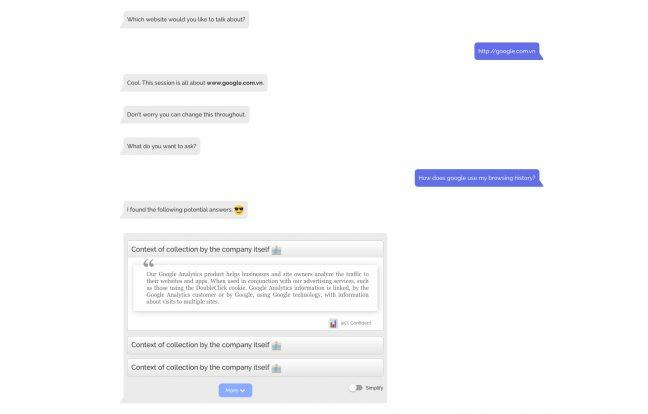Kassem Fawaz, an associate professor of computer and electrical engineering here at the University of Wisconsin, is one member of a consortium of researchers that worked to design a new chat tool aimed at helping users understand what rights they are giving up when they click on the omnipresent “I’ve read and understand the terms and conditions” button.
These privacy policies that are required for almost every visit to a new site or download of a new app, but they almost always go unread. As a generation that grew up on the internet, we have over time gone blind to these policies, yet we often do not realize exactly what we are agreeing to.
Fawaz articulated this in a recent interview. He said, “Typically drafted by lawyers, these documents tell you, ‘This the information we’re collecting, this is how we’re processing it, this is who we’re sharing it with, this is how we’re storing it and these are your options regarding the collection and processing of it’.”
UW professor emphasizes positive effects of internet communication
This sounds like information the public should be interested in. The collection of data is important, and the privacy concerns that often come with it are things that bother us. How many people have been bothered by incessant ads for products they looked at once and decided not to purchase. Well, guess what? They probably agreed to that when they said they understood the privacy policy.
Fawaz and his colleagues think they have a unique answer to help this issue. They developed an automated chat bot, accessible at pribot.org, that you can ask questions about privacy policy. The user inputs the site it is curious about, and then can ask questions about that site’s privacy policy. An example question could be, “How does this site use my browsing history?” prompting the bot to scour until it finds the answer to your question.
The group also created an accompanying tool called Polisis, that shows the data companies collect in colorful and easy-to-digest graphs.
Wisconsin lawmaker introduces legislation to increase transparency in pharmaceutical industry
While this tool will have immediate applications in improving the privacy of web users, what’s more interesting is the underlying technological applications.
Consider all the documents that get overlooked because they are too long and wordy to read. As students, we all have had to sign leases. Would it not have been great if there was a tool that answers specific questions about a lease? How about an employment contract? All things that would be amazingly easier to comprehend with tools like this.
Even beyond contracts, tools like this can change the way we examine politics. Bills that pass through Congress are most of the time obnoxiously wordy and longer than a Monday morning walk up Bascom. We end up relying on biased news outlets to summarize the bills for us.
With tools like Pribot and Polisis, these bills could become much more accessible to the average citizen. We could finally figure out what a bill accomplishes without needing to rely on news sources and biased individual analysts.
Of course, technology like this does still raise issues. Society is becoming increasingly reliant on technology and this would take that a step further. Do we want to live in a future where critical reading is no longer a human skill, but machine? Unfortunately, the opportunity to question the role of technological dependence in our society may have passed already.
Overall, this technology has the chance to revolutionize the way we understand complex documents like legal contracts and congressional bills. But its effects on humanity’s dependence on technology remains to be seen.
Eric Hilkert ([email protected]) is a junior majoring in finance.














